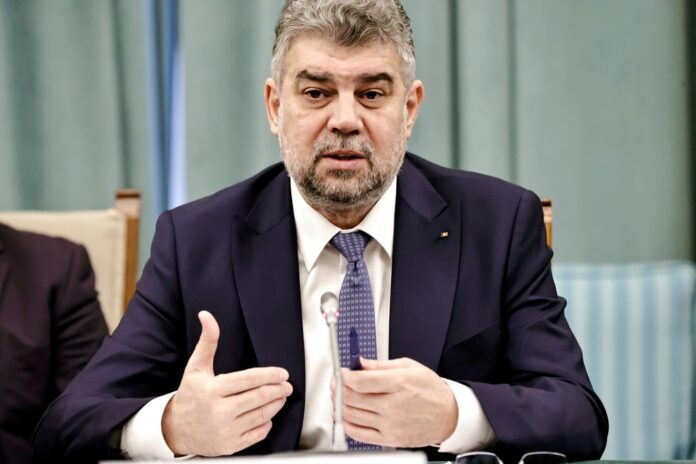Romania’s accession to the Organisation for Economic Co-operation and Development (OECD), along with full integration into Schengen and the completion of the National Recovery and Resilience Plan (PNRR), marks a turning point for the development of modern Romania, said Prime Minister Marcel Ciolacu at the Cotroceni Palace on Wednesday, at the conference „Romania and the OECD – The Main National Project after NATO, EU and Schengen,” an event organised by the Presidential Administration.
„Immediately after I took office as prime minister, I announced that joining the OECD is the most important strategic goal for Romania’s development and modernisation. That is why I believe we must use every opportunity, such as today, to explain to Romanians why this should be a national effort. Because membership in the OECD means higher investments, a better country rating, a fairer competition framework for companies and a tax system in which resources will be used more efficiently. In short, it means a more effective public administration. It means improving the life of every Romanian through modern social services, with new quality standards,” explained Marcel Ciolacu.
He gave as an example a measure to be applied in the education sector, as recommended by the OECD.
„Teachers in Romania will be evaluated annually on an online platform, with student performance analyses and feedback from colleagues and school directors, all managed digitally. These evaluations will directly influence teachers’ salaries. The goal is to correlate teachers’ pay with the performance of the education system, a universally expected outcome in society. This is one of the many concrete progresses made in the last year and a half, during which we have managed to obtain 12 formal opinions from OECD Committees that assess us, almost half of the total required,” Ciolacu added.
The authorities in Bucharest, he said, are committed to maintaining the same sustained pace this year to obtain the remaining opinions.
„The truth is that joining the OECD, managed simultaneously with the completion of the PNRR, represents the most difficult, complex and sophisticated administrative exam Romania has faced since its European integration. We had to learn to work practically, in large teams and in an interministerial format, on the 26 fields of activity where we are thoroughly evaluated to meet the targeted standards. But if we calculate the effort versus the benefits, the advantages are enormous. According to forecasts from the National Bank of Romania and the private sector, joining this select club will open enormous opportunities for Romania’s economy,” underscored Ciolacu.
He highlighted that Romania’s accession to the OECD represents a national project and a clear message that Romania wants to join the ranks of developed countries.
„The moment we enter the OECD, in the first fiscal year, Romania’s GDP could increase by almost 7 percentage points. This would mean that by 2030, we have a good chance of reaching the European average for a very relevant indicator, GDP per capita in purchasing power parity terms. This will bring Romania access to financing and capital at much cheaper rates, plus a massive boost in investment destination rankings. Moreover, we will have a seat at the table where major fiscal and economic policies with global impact are decided. Joining the OECD, coupled with full integration into Schengen and the completion of the PNRR, marks the turning point in the development of modern Romania. This requires us to complete substantial reforms, access 100% of available EU funds and accelerate the processes of economic convergence,” Ciolacu said.
The prime minister also brought to mind that Romania made major progress when the whole society aligned behind a national ideal.
„I believe that joining the OECD is such a crucial moment for Romania’s future. It is a historic opportunity to regain our social cohesion and national solidarity and to fulfill an ambitious destiny, which Romania fully deserves: that of becoming a European economic power. Because only a state with a strong economy can hope to be a voice that matters internationally,” Ciolacu added.
AGERPRES




